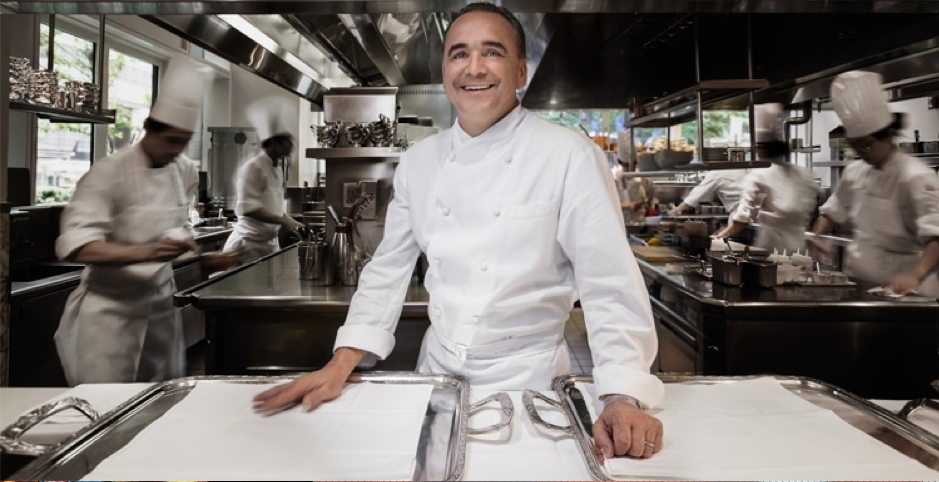
Your Start-Up Life is a business advice column by Rana Florida, CEO of the Creative Class Group. In addition to answering readers' questions she features conversations with successful entrepreneurs, creative thinkers and innovative leaders. Send your questions about work, life and play to rana@creativeclass.com
If all he did was cook, Jean-Georges Vongerichten's status as one of France's -- and the world's -- most innovative chefs would be assured. His thirty-plus restaurants, in as far-flung locations as Bora Bora, Paris, Doha, Mexico City, Vancouver,and Shanghai--have earned a galaxy of Michelin stars and other accolades; he is the James Beard Award-winning author of a number of best-selling cookbooks, and a familiar face on television, on both cooking shows (he co-hosted his wife Marja's PBS series Kimchi Chronicles) and virtually every top talk show.
But Vongerichten's amazing talents in the kitchen are aligned with a genius for business -- and not just for the big picture, but for the nitty gritty details that turn high concepts into profitable undertakings. He oversees every aspect of his restaurants and product lines, from concept to menu development, from the architectural design of the spaces to the hiring and training of his team.
We worked together in our roles as Cultural Curators for Starwood's Le Méridien press launch at his ever-popular ABC Kitchen in Manhattan. I was amazed, but somehow not surprised, when he told me he'd outfitted the restaurant's rustic chic décor with items he'd purchased on eBay for just $150,000.
I was very excited to talk with this culinary visionary about everything from risk taking to balancing his hectic work schedule with his personal life.

Q. What was your first job and what lessons did you take away?
A. My first job was as an apprentice to Chef Paul Haberlin in 1973 at Auberge de I'll. There I learned how to sharpen and use a knife but most importantly I learned discipline and punctuality.
Q. Opening a new restaurant takes a big investment, how do you approach risk?
A. When it comes to a new restaurant or venture I am fearless. I just do it.
Q. How do you ensure brand integrity and quality practices with greater expansion?
A. I am able to ensure brand integrity and quality practices at all of my restaurants by choosing the best partners, employees and locations.
Q. The nature of your business faces high employee turnover. What initiatives do you put into place to combat that?
A. Employee retention is one of the hardest parts of the restaurant business. In order to keep employees from leaving I do my best to keep them motivated and continue to teach them and keep them learning. I also like to promote from within. For example, Mark Lapico started as an extern at Jean-Georges and has worked his way up to Executive Chef.
Q. What traits do you look for in new hires?
A. I look for fresh young talent who have no habits and are moldable. This allows for learning and training of the palette.
Q. Where do you get your inspiration for new recipes, ideas and restaurants?
A. I am inspired by almost everything from traveling to new places both around the world and in NYC, the change of seasons and cookbooks written by my peers. Everything I see and touch and taste will in some way impact my recipes ideas and restaurants.
Q. When do you know it's time to walk away from a project?
A. After 40 years of being in the industry, I can really feel and sense when it is time to walk away.
Q. How do you deal with the critics?
A. There really is no trick to dealing with critics. You can try your hardest to recognize and pamper them but if the product and quality are not available there is nothing you can do on the spot. With social media and the internet everyone is a critic these days. My way of dealing is by providing all my guests with the best experience possible. I learn a lot from every critique written and use them constructively.
Q. How do you balance home life with a demanding work schedule?
A. It is very difficult however I try to spend my weekends with my family and friends in the country.
